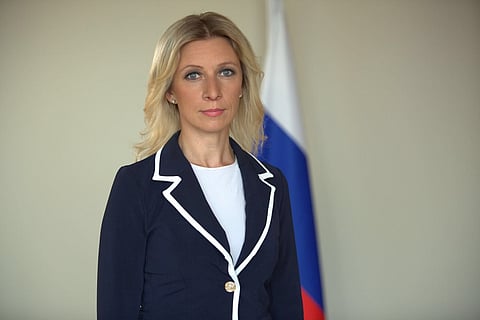

The European Union’s efforts to distance itself from Russia, particularly in the energy sector, have come at a steep economic price, according to the Russian Foreign Ministry. Spokeswoman Maria Zakharova argued this week that the EU’s political stance toward Moscow has damaged its own economic foundation and quality of life for its citizens.
Speaking at a regular briefing, Zakharova described the EU’s policy of cutting ties with Russian energy as a “self-inflicted wound,” citing an estimated €1.3 trillion in economic costs since the bloc began reducing reliance on Russian natural gas in 2022.
Following the escalation of the war in Ukraine, EU leaders committed to reducing dependence on Russian fossil fuels. Russian pipeline gas—once a pillar of European industry and energy affordability—has largely been replaced by more expensive liquefied natural gas (LNG) imports from the United States.
According to data referenced by Zakharova, this pivot has had significant consequences:
GDP losses across the EU are estimated at 3.8% by 2024.
Growth has slowed, with EU GDP increasing only 1% this year.
Industrial output is expected to shrink by 2.4% in 2025.
Meanwhile, Russia claims its own economy expanded by 4.1% in the previous year, suggesting a divergence in post-Ukraine war economic trajectories.
Zakharova asserted that the economic burden has fallen hardest on ordinary Europeans. From 2022 to 2024, households across the bloc reportedly lost around €1.6 trillion in income, due to higher energy prices and sluggish growth.
“Europeans are being forced to tighten their belts,” Zakharova said, suggesting that the public is paying for policies driven by what she called a “Russophobic” political agenda.
The Russian spokesperson criticized EU leaders for continuing to escalate anti-Russian policies while simultaneously aligning more closely with Washington. She claimed that hundreds of billions of euros have been spent on military aid to Ukraine and on replacing Russian gas with more costly American alternatives.
Compounding the situation are recent trade tensions with the United States. Following his return to the presidency, Donald Trump has reportedly imposed new country-specific tariffs, including a 20% tax on EU goods. This could result in €750 billion in projected losses for the EU over the next four years, according to some economic forecasts.
Zakharova argued that the EU’s political and economic strategy is now caught in a transatlantic dilemma—losing out both economically and geopolitically.